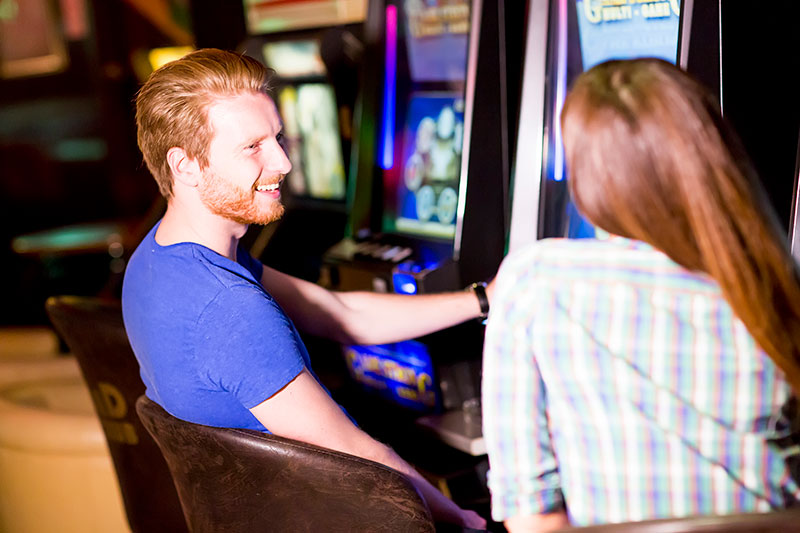Casino Phrases You Don’t Know You’re Using
Whether you enter a massive casino resort in Las Vegas or Macau or play at home, the casino has its own unique language that has evolved over the centuries. In fact, that language has permeated daily life. The terms we use to describe winning, losing, luck, and even sanity and death are inspired by the casino games we play.

But I Don’t Use Casino Expressions
If this is your response, you may be telling the truth about how you speak. However, it appears that you are playing your cards close to your chest. Perhaps you’re one of the rare wild cards who doesn’t use any casino-related idioms, but chances are you’re lying – or you’re a few cards short of a full deck.
So, let’s lay our cards on the table: casinos have provided more than their fair share of everyday phrases and idioms. You’re on a roll when things are going well in your life. When everything goes perfectly, you’ve hit the jackpot.
Of course, if luck isn’t on your side, it’s a crapshoot. It’s all down to the luck of the draw, and you have to let the chips fall where they may. Don’t like it? No dice. When the chips are down and all bets are off, you have to bet your bottom dollar and go for broke.
What’s Your Lucky Number?
Casino games are inextricably linked to numerical superstitions. The “lucky number seven” belief dates back millennia, but there’s a reason it’s a winning number in craps or emblazoned on the jackpot reels of a slot machine. Try betting 13 the next time you’re at a roulette table for similar reasons. You’re unlikely to share the jackpot with any superstitious gamblers!
In fact, depending on your nationality and culture, many other numbers are lucky or unlucky. Three is a lucky number in Sweden and Italy, but an unlucky number in Vietnam and Japan. In Germany, four is a lucky number; in China, Taiwan, Singapore, Malaysia, Japan, Korea, and Vietnam, it is unlucky. In Norway, the number nine is considered lucky; in Japan, it is considered unlucky. In Italy, the number seventeen is considered lucky.
Casino Expressions and Phrases from Roulette
In his quest to create a perpetual motion machine, French mathematician Blaise Pascal invented roulette. Although this failed, it resulted in the game’s nearly frictionless spinning wheel. In fact, the word “roulette” means “small wheel” in French. A similar Old English game gave us the word “roly-poly,” which we still use today.
Of course, roulette inspired the infamous game of Russian Roulette. Of course, it’s not a game, nor is it roulette, nor is it Russian. The exercise entails loading a bullet into a revolver, spinning the chamber (similar to a roulette wheel), and pulling the trigger. A few nineteenth-century Russian novels described the stunt, and after World War I, a myth developed about reckless (or ruthless) Russian military officers who allegedly tried it.
It has gained enormous fame in novels, movies, and other depictions of war due to the few reliably recorded incidents of people playing Russian Roulette. Mostly, the expression is used in popular culture as a metaphor for fate’s cruelty.
Casino Expressions and Phrases from Blackjack
For more than 600 years, the game now known as blackjack or 21 has been played under various rules and names. Written records of the Spanish game trente-un (31) date back to 1440.
In his 1613 novel Don Quixote, Miguel de Cervantes generalized the rules. In other countries, quinze was used in France, ventiuna in Spain, sette e mezzo in Italy, and bone ace in England. (Bone ace could be the first game to value aces as one or eleven.)
The dominant game among these variations became vingt-et-un (21), which flourished in France at the beginning of the nineteenth century, thanks in part to Napoleon Bonaparte’s interest. Some American establishments attempted to increase the popularity of 21 in the early twentieth century by paying players a tenfold bonus for a natural 21 with the jack of spades. Even though the bonus did not the name stuck.
Casino Expressions and Phrases from Craps
Craps is known as “dice” or “dice game” in many languages. Dado (Spanish), Würfelspiel (German), kosci (Polish), zaruri (Romanian), and other words. Its origins and etymology, like many casino games, are hazy and disputed. Azzahr, a dice game from the Arab Peninsula, became popular in England as hazard. Crabs were the lowest dice rolls. According to some legends, the name was derived from the French crapaud (toad) because it was played on streets and sidewalks. The players squatting to reach the dice looked like a swarm of toads.
A casino rite of passage is rolling the bones. Dice are the oldest gaming pieces discovered by archaeologists. Astragalus from sheep was used to make ancient dice (the bone above the talus or heel bone, also called the hucklebone). The first six-sided dice were discovered in Mesopotamia (northern Iraq) around 3000 B.C. Have you ever wondered why dice are marked with pips rather than numerals? Because the standardization of dice symbols predates our modern Arabic numbers.
Life After Death: Expressions from Forgotten Games
Many expressions and phrases have outlived their origins, much like the obsolete floppy disk remain the universal symbol for storing data. Faro is one such example: in the late nineteenth and early twentieth centuries, it was one of the most popular games in the United States.
Faro is now a forgotten game. Faro is responsible for many common expressions, including breaking even, stringing along, casing the joint, punters, keeping tabs, and many more.
Other long-lasting expressions arose from games that few casino players would recognize left in the lurch (from the French board game Lourche or Lurch), rigmarole (from the medieval game Rigmarole), riffraff (also from Rigmarole and similar games), and hazard (from the game Hazard)
Titbit: Into the Lion’s Den
When the MGM Grand in Las Vegas first opened in 1993, the main entrance was designed as a large golden lion’s head. The MGM logo is a roaring lion, so this made perfect sense.
Unfortunately, the image of players literally throwing themselves into the lion’s jaws, combined with an old superstition that entering the casino through the main entrance is bad luck and an Asian belief that cats are unlucky compelled them to redesign the entrance five years later.
100% up to €500 or 5 BTC

